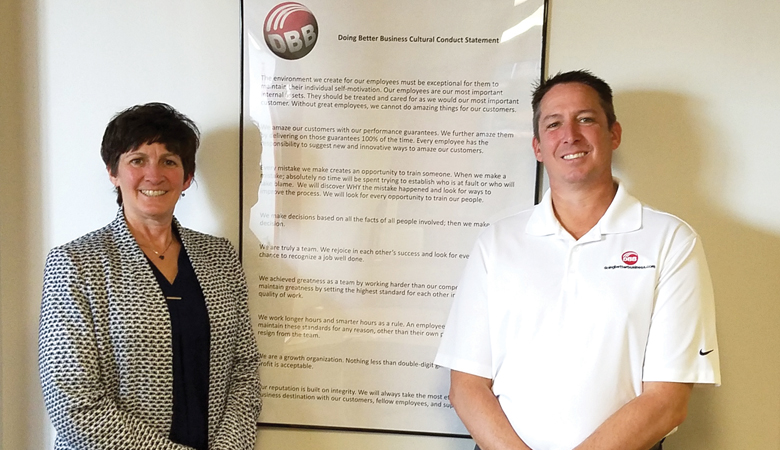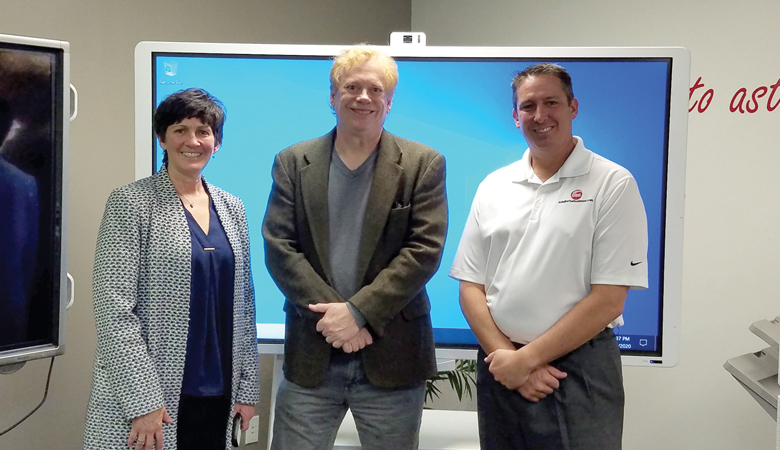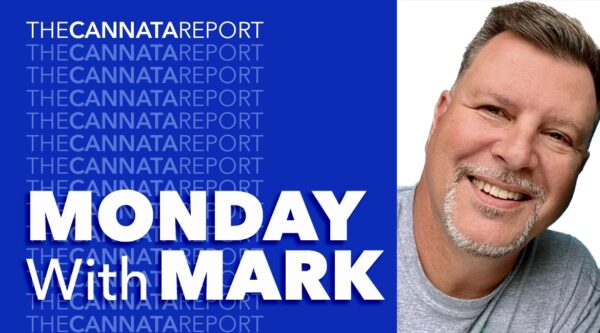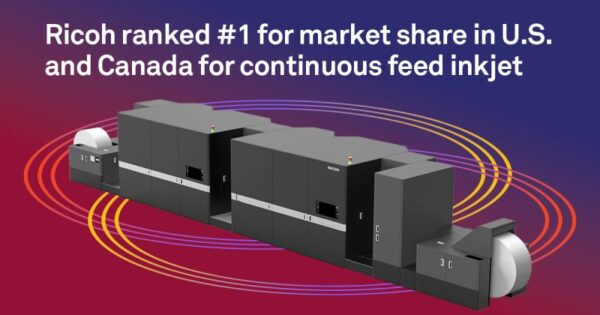A commitment to its legacy business leads Doing Better Business to consistent profitability.
There are no signs of sibling rivalry at Doing Better Business (DBB). The dealership, based in Altoona, Pennsylvania, with offices in six locations, is led by Deb Dellaposta, president and chief executive officer, her brother Joe, chief operating officer, and her sister Beth, chief financial officer.
On March 9, the day before the coronavirus pandemic began disrupting everyday life and travel across the U.S., I flew to DBB’s Pittsburgh office to meet Deb and Joe for the latest installment of the CR—CONNECT—2020 Dealer Tour. Deb typically works out of the Altoona office with Beth, while Joe is based in Hagerstown, Maryland.
A Family Foundation
Deb and Joe’s familial connections were crystal clear, as they finished each other’s sentences and thoughts during our interview. Beth, who prefers to keep a low profile, remained in Altoona.
The Dellaposta parents founded Doing Better Business in 1973 as Word Processing Services (WPS). It has grown to just shy of 100 employees and covers pretty much the entire state of Pennsylvania, except for eastern Pennsylvania and the highly competitive Philadelphia market. DBB also serves western Maryland and the A1 corridor through Virginia and West Virginia, as well as counties in Ohio, added when DBB acquired portions of the Ricoh MIF in 2018.
Neither Deb nor Beth had plans to join the family business, while Joe felt the pull from an early age.

Above: Two-thirds of the Doing Better Business executive team: President & CEO Deb Dellaposta and her brother Joe, the dealership’s COO. Missing from the photo is sister Beth, DBB’s CFO who works out of the Altoona, PA office.
Although Deb worked at the dealership during the summer when she was young, she had her sights set on a career in the film industry and even moved to Los Angeles to pursue her dream. After learning that WPS needed a branch manager for the Altoona office, Deb moved back east in 1992. The plan was to do it for five years, then move to Baltimore and do something else, except she fell in love with Altoona, the people, the community, and her job. In 2013, the company appointed her as president and CEO.
Beth studied sociology and early childhood education in college with plans to become a schoolteacher. That career path shifted direction after graduation in 1991 when she started working at WPS in the accounting and collections department. She committed to a career with the company and became CFO in 2010.
Joe worked in the warehouse during high school. After graduating from college, he joined WPS as a sales rep based in its Frederick, Maryland, office. After a few years, he briefly left DBB to work in sales for a medical supplies company. It was an opportunity to try something different and accumulate experience outside the familiar family atmosphere. Nevertheless, he always figured he’d be back. He returned earlier than planned at the request of DBB’s sales manager, a former classmate of his from grad school.
“That didn’t work out well for him, unfortunately,” said Joe. “He wanted me to come back to join sides with him so he could argue with Debbie and others.”
Joe ultimately took over the sales manager role, a position he held until he was named COO in 2002.
In August 2017, the three siblings purchased the business from their parents.
Deb and Joe agree it’s not difficult working together now. It was far more challenging when their parents were involved because there were five decision-makers.
Loving the Legacy Business
MPS represents a healthy 30% of Doing Better Business’s overall business, while a small percentage comes from managed document services. The bulk of the business is still legacy imaging technology.
Deb and Joe understand what’s happening with print, but they’ve also seen things that indicate the decline might not be as dire as some print industry analysts predicted before the pandemic.
After a local school district implemented an accounting system and document management system, DBB was surprised by the 25% decline in print volumes, which was greater than the 10% that was anticipated. However, after setting up the school district with mobile printing, print volume returned to previous levels.
Doing Better Business serves a mix of industries and customers. This diverse customer base allows it to overcome losses through attrition. “There’s no market that holds more than 1% or 2% of our business,” says Deb, citing dealers who solely focused on state business and closed after that business went away.
Culture Clash
One characteristic that sets Doing Better Business apart from its competitors—and has made a difference in finding and retaining good people—is its culture. When Deb arrived in 1992, she wanted DBB to be a fun place to work, but that wasn’t the case.
“I inherited some people that were not a good fit,” recalled Deb.
Wanting to create more of a tight-knit family atmosphere across the organization, she examined the dealership’s culture and took steps to improve it to. She surveyed employees, identified the dealership’s core values, placed people in teams, and encouraged them to have weekly “huddles” to improve communication. The goal was for everyone to respect each other and feel as if they were part of a family. It’s been that way ever since.
Another characteristic of DBB’s culture is allowing people to take ownership of their work by functioning as leaders and making decisions without checking with the leadership team at every turn.
“No one has ever been fired for taking care of the customer,” said Deb. “We might not agree with what you did. We use it as a coaching experience, explaining what we would have done differently.”
Best Place to Work
Seven years ago, Deb stepped in as president. It’s no coincidence that by the second year of her tenure, Doing Better Business was consistently winning “Best Places to Work” awards in Pittsburgh and for the state of Pennsylvania.

Above: The Cannata Report’s Editor-in-Chief Scott Cullen, joins Deb and Joe in one of Doing Better Business’s conference rooms.
“In the beginning, it was a way to gauge how we were doing, but now, we know we’re a ‘Best Place to Work,’ and we don’t have trouble recruiting people,” said Deb.
DBB’s newest employee is a young woman who previously worked for one of DBB’s customers. According to Deb, she was impressed by the professionalism of DBB’s service techs, and how happy they were when they arrived for a service call. When she saw an ad that DBB was looking for salespeople, she applied and during the interview commented, “I want to work in a place where people are happy.”
While hiring sometimes has its challenges, retention is not a significant issue at DBB.
“The hard part is finding somebody that fits the culture and has the drive and motivation to be successful,” said Deb.
“We have great retention with people that perform,” added Joe. “It’s just having to cycle through the non-performers to get to the performers.”
Growing Through Acquisition
Doing Better Business made its first acquisition under the DBB name in 2012, another in 2013, and one more in 2017. When Ricoh transferred MIF to dealers in 2017, DBB acquired a portion of that MIF, expanding its customer base. That year, the dealership also acquired part of the base of Stratix Systems.
Taking over the Ricoh MIF and a new base of customers was a learning experience.
“I would have mentally prepared more, given that I was going to have to go on sales calls every day for six months to meet people and assure them that we were financially stable, local, and not going anywhere,” said Deb.
“The transition of the people was fantastic,” added Joe. “It was definitely a win. We would do it a hundred times over again.”
When exploring acquisition targets, the focus is primarily on geography. It doesn’t matter if the dealership is profitable.
“I’d rather them not be profitable,” said Joe, who explained that with an unprofitable dealership it is easier to make cuts and fix what needs to be fixed.
According to Joe, it helps if the acquisition target carries one of DBB’s three product lines—Ricoh, Sharp, or HP. Most importantly, the culture needs to be in sync with Doing Better Business’s.
“The last thing we want is to make an acquisition that’s going to blow everything up,” said Deb.
Just Say No to Managed IT
In 1995, Deb had an epiphany about copiers. “I remember thinking, these things are all going to be connected and be printers eventually,” she recalled.
Deb always liked computers, so while Joe was still in college, they took a class together to be certified on NetWare. For a time, Deb was DBB’s networking technician, but when she realized she couldn’t keep up with the demand, she hired someone to take on that role.
Managed IT is another story. After five years of attempting to build that business, DBB pulled the plug.
“It was putting a hurt on cash flow, which led to high levels of stress,” said Deb. “If there’s one thing I could have waved a magic wand and made successful, that’s the thing.”
The stumbling block, she said, is something every dealer will encounter. You don’t run the books on managed IT the same way you run the books on the office printing side. Deb doesn’t think most dealers are making money on managed IT.
“You need quality service and a quality price point,” emphasized Joe.
Staffing that segment of the business was also a challenge. “For the average dealer, the employees needed to run a successful network operation center and provide field service are not happy or loyal,” said Deb.
Another obstacle was customer satisfaction. “I’ve never met a happy IT customer,” said Joe.
“We’ve partnered with who we thought was the best of the best in our region, and our customers were never happy,” concurred Deb. “And we like happy customers. We put a lot into making sure we have happy employees, number one, and number two, happy customers.”
Deb and Joe aren’t ignoring those in the industry who tout the need to diversify, but between the MPS business and the traditional copier business, DBB’s business is solid.
“We’re good at what we do, but even in our best territories, we still probably have 20% market share,” revealed Joe. “There’s so much out there that we don’t have right now, even if print is dying. If you go into network services, even if you can make the same margin, at the end of the day, you have to be an expert in two different fields and manage both. It just seemed like a lot of extra work when I should probably just go out and increase my market share.”
“Focusing on the document business has been tremendous for our profitability,” concluded Deb.
Access Related Content
Visit the www.thecannatareport.com. To become a subscriber, visit www.thecannatareport.com/register or contact cjcannata@cannatareport.com directly. Bulk subscription rates are also available.



